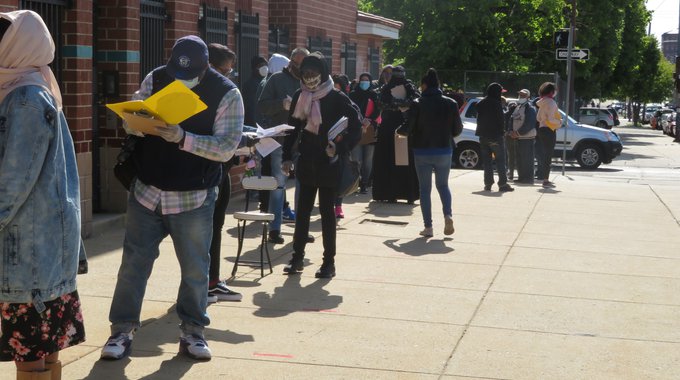In Philadelphia, LISC Partners with HACE to Ensure Vital Housing Programs During Pandemic
Keeping people housed during the COVID-19 pandemic has been a vital public health strategy, as well as a critical aspect of local community development strategies. So, when the Philadelphia-based Hispanic Alliance of Contractors and Enterprises (HACE) ran into city funding delays under two housing services contracts, the nonprofit began fronting the cash to make sure it could continue to help keep at-risk families in their homes.
Keeping people housed during the COVID-19 pandemic has been a vital public health strategy, as well as a critical aspect of local community development strategies.
So, when the Philadelphia-based Hispanic Alliance of Contractors and Enterprises (HACE) ran into city funding delays under two housing services contracts, the nonprofit began fronting the cash to make sure it could continue to help keep at-risk families in their homes.
It was a critical response that protected hundreds of people, but it also put added pressure on the nonprofit’s cash flow at a time when its services were in high demand, as the impact of COVID-19 deepened. In response, HACE worked with LISC on a line of credit to bridge the grant receivables so it could protect the well-being of the families with which it works as well as its own financial capacity.

“This is the kind of lending that on its face seems fairly straightforward—a line of credit to bridge government funding that happens to have slowed a bit because of the pandemic,” said Katya Noreika, lending officer in the LISC Philadelphia office. “But it’s tough to find this kind of affordable bridge capital in the conventional market, even for highly regarded organizations with long track records of success. That’s why community development financial institutions (CDFIs) like LISC are so important.”
In fact, HACE has been working in Eastern North Philadelphia for nearly 40 years, driving high-impact projects and programs in the heart of the city’s Latino community. HACE develops housing, businesses and jobs. It fuels the art and provides services for the elderly. It offers homeownership support and leads crime and safety initiatives. All told, it has invested more than $100 million in local economic development.
In the case of the two city housing contracts, the well-being of hundreds of families was at stake. Under one contract, HACE was providing housing stabilization services to households at risk of homelessness, including financial assistance to pay the rent, assistance to find affordable homes and pay security deposits, help with back rent to erase arrears, and employment support to help people stabilize their outlook. The goal was to keep them safely housed while reducing the strain on the city’s emergency housing services.

The second contract addressed housing from a different tack, with HACE overseeing home repair services—including new windows, porches, lighting and sidewalks—for homeowners in the Kensington, Fairhill and Harrowgate neighborhoods, focusing on those who could not afford those repairs on their own.
For LISC, like HACE, supporting this work is part of a block-by-block, community-led strategy to reduce blight, prevent displacement and anchor a vibrant, stable residential base. “It helps reduce crime while also supporting neighborhood-based contractors, many of which are BIPOC-owned small businesses,” noted Noreika.
LISC has a long-standing relationship with HACE, having made its first grant to the organization back in 1983. Since then, LISC has invested in HACE-led housing developments, commercial corridor revitalization, micro-enterprise support, home repair efforts and development of green space. What’s more, HACE’s Henry Tapia, director of operations, was awarded a LISC Rubinger Fellowship for 2021 in support of his thoughtful work to design a redevelopment plan for Willow Square Park.
This kind of decades-old, deep collaboration reflects the value of lasting partnerships, as well as the importance of investing in a strong, sustainable infrastructure of community development, noted Andy Frishkoff, executive director of LISC Philadelphia.
“When we invest in organizations like HACE, we invest in the well-being of the local residents they serve--helping break down barriers to health, wealth and opportunity so that people can reach their full potential. We’re proud to be a part of their important work.”